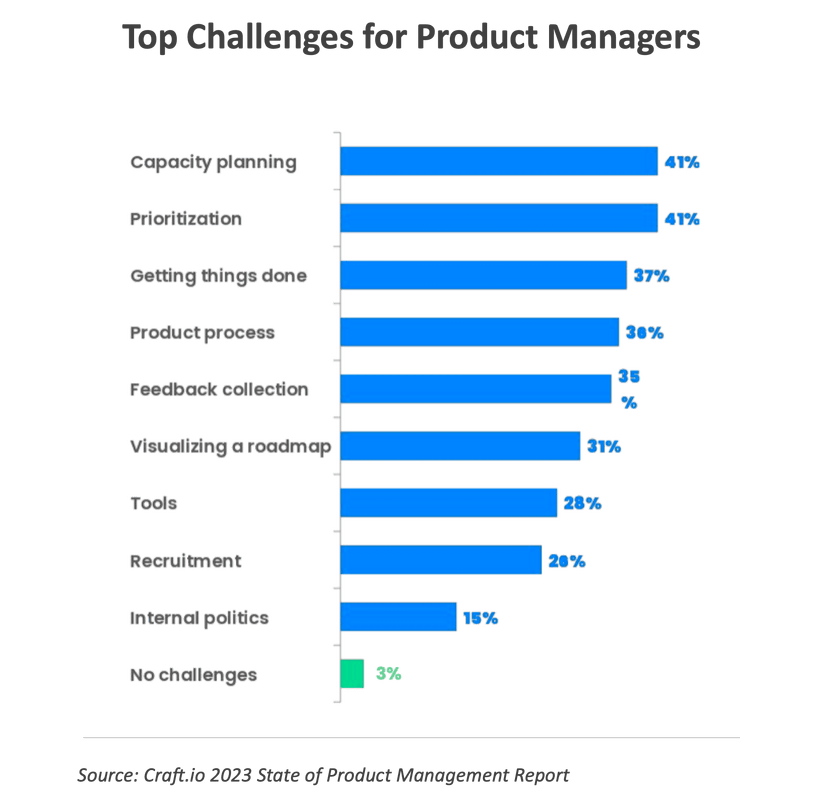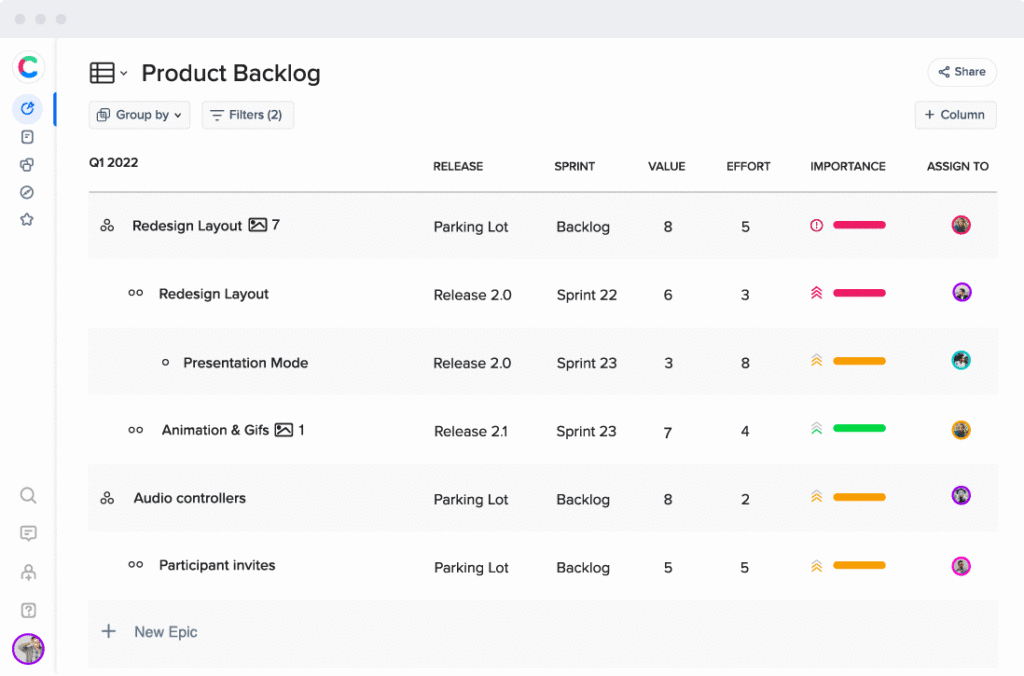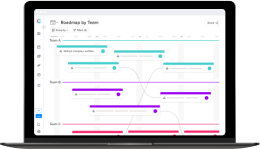What Does it Take to Become a Great Product Manager?
Product management is one of the most rewarding professions, but it’s also one of the most difficult, in part because it requires so many different types of expertise.
You could make a persuasive argument, in fact, that Product Managers need a broader set of skills than almost any other profession. Sales reps need to know how to sell. Engineers need to know how to design and build things. But as we’ll explain in this guide, success in product management requires a much wider range of abilities, including:
- Business savvy
- Research skills
- Analytical skills
- Technical knowledge
- Leadership ability
- Communication skills
- Listening skills (And yes, listening is definitely a skill, and a rare one.)
What Is Product Management and What Does a Product Manager Do?
Product management is the department ultimately responsible for the market success (or failure) of a company’s products.
But because product success requires the direct contributions of many individuals and teams across the company — development, design, sales, marketing, customer service, etc. So Product Managers play more of a strategic role in coordinating the efforts of these various stakeholders to help bring successful products to market.
The Product Manager’s job description
That was a broad explanation of the product management function, so let’s discuss in more concrete terms what Product Managers actually do with their time. While the day-to-day workload of Product Managers will differ from company to company, their main areas of focus typically include some or most of the following:
- Coming up with a concept and plan for the product
- Validating the product concept with users
- Coordinating the product’s development
- Training the sales and customer service teams on the product’s features and benefits
- Overseeing the product launch
- Analyzing user feedback to improve the product over time
- Prioritizing and capacity planning to determine where to allocate resources
The Traits of Successful Product Managers
As you can see from the list above, Product Managers need to be extremely versatile, talented across a number of areas. For example, coming up with new product concepts will require strategic thinking, vision, and the ability to research and analyze the market to find opportunities others have missed. And that’s just one of many responsibilities in the Product Manager’s job description.
So now we’ll expand on our description in the introduction about the top skills for Product Managers.
Note: The skill set below will be valuable for Product Managers in almost any industry. We’ll be focusing primarily on SaaS software companies, but you’ll need these skills to succeed in product management in businesses that sell anything from consumer packaged goods to apparel to financial products.
1. Business savvy
Product management is first and foremost a business role.
In fact, your primary job as a Product Manager isn’t to build products. That is the more tactical part of the profession — and it should start only after you’ve done the more strategic and fundamental work: finding solutions to challenges facing your market, solutions that bring value to your target customers.
Successful Product Managers think of their products as businesses — with finite resources, budgets, potential for growth (or not), and profit-and-loss statements. If certain functionality in the product or a specific pricing model isn’t gaining traction with users — or worse, generating negative reactions from the market — business-minded Product Managers will adjust their plans accordingly.
When you view your products this way, you’re more likely to avoid common product management missteps such as prioritizing products or features because your team thinks they’ll be cool, or simply because they’ll be the first of their kind.
2. Research skills
A skill closely related to business savvy is the ability to conduct effective research.
As a Product Manager, you’ll need to find market opportunities that your competitors don’t see, spot potential threats so you can act on them, and keep up with what’s happening in your target markets to ensure your products respond to your users’ needs and goals.
All of these strategic undertakings require research ability, and that means knowing where and how to find answers. This could include reading industry research reports, studying the customer reviews of your competitors’ products, or sending out surveys to learn what your own users like and dislike about your products.
The key takeaway here is to understand that to succeed as a Product Manager, you can’t make decisions in a vacuum. No matter how much you trust your intuition, you need to support your gut instincts with real-world data you compile through research.
3. Analytical skills
Research alone can’t tell you what features to prioritize, which product idea to move forward with, or where to allocate your limited development resources for the next few months.
Research itself can produce only inputs to help guide your strategic decisions. It doesn’t represent the decisions themselves. You need to turn the raw data you’ve gathered into actionable answers. And this takes yet another skill, the ability to analyze and derive insights from your research.
Analytical skills can mean different things depending on your company, industry, and the types of data your research produces. But for a SaaS Product Manager, it usually includes:
Product analytics
The actual usage data of your existing products. If you have the skills to analyze this data effectively, it can help you detect patterns or stories in how your customers are interacting with your products today, and where you might benefit from spending time and resources on improving the product.
KPI (key performance indicator) analysis
These are the business-driven metrics — such as feature adoption rates, revenue per quarter, and customer retention rate — that can tell you how and where to devote your team’s time and energy. Your ability to analyze and gain business intelligence from these metrics will play an important role in your product’s success.
Competitor analysis
Very few products enjoy the position of having no competitors — at least not for long if they’re successful. That means another type of data analysis you’ll need to perform is monitoring your competitors — their market successes and failures, their customer reviews, and whatever financial details you can find about the market share and revenue their products are bringing in. Understanding the underlying stories behind these data will help you make more intelligent strategic decisions about your own products.
4. Technical knowledge
Let’s get this out of the way first: Product Managers don’t need to know how to physically (or digitally) create the products they oversee. The ability to build or fix a car isn’t a pre-qualification for product management success in the automobile industry, and knowing how to code isn’t a necessary skill for success as a SaaS Product Manager.
But it’s definitely a best practice to develop some familiarity with the technical side of your company’s products. Doing so can help you have more productive conversations with your development department, make better-informed decisions in your capacity planning, and earn greater respect from your Developers or the other technical professionals who will be building your products.
5. Leadership ability

One of the most challenging aspects of this profession is that Product Managers need to drive the development and continuous improvement of their company’s products, but the subject-matter experts they’ll be counting on to make this happen — developers, sales reps, etc. — report to other departments.
You’re going to need real leadership skills if you hope to pull together teams across the company, make sure they all understand your strategic plans and business objectives for the product, and keep everyone inspired throughout the long process of bringing the product to market.
These leadership skills will include keeping your cross-functional team informed and up-to-date throughout the process and letting people know quickly when — and, even more important, why — your direction or priorities need to change. A major component of successful leadership is simply being there for your team, so you’ll also need to make yourself available for questions or concerns throughout the development process, and to respond promptly to your teammates’ requests for help.
It’s also worth noting that developing strong leadership abilities will prove valuable if you want to advance in your product management career.
6. Communication skills
The ability to communicate clearly and concisely might be the most important skill for a Product Manager. Without outstanding communication skills — both verbal and written — your ability to make the most use of your other important product management skills will be undermined.
One important skill you’ll need to develop as a Product Manager is flexibility in your communication. Because you’ll be working with so many different stakeholders (from Developers to sales reps to the company’s C-level executives), you need to learn how to be clear and persuasive with different types of professionals and people who process information in different ways.
For example, in our recent blog, No-Bull$%&t Tips to Help Product Managers Improve Their Persuasion Skills, craft.io CEO Elad Simon pointed out that you’ll need to be versatile enough to persuade two different stakeholders of the same thing using very different communication approaches.
As Elad explained, “Your CTO might be numbers-driven. That means you’ll want to build your proposal for this conversation around statistics, market data, revenue projections, or a cost-benefit analysis. But your Sales VP might resonate with stories and not numbers. Your best bet to persuade this person to become a champion in the company for your idea will be by telling a compelling story.”
7. Listening skills
Finally, success in product management will require the ability to listen carefully to the many inputs you’ll be receiving about your product, so you can process and analyze this information to make better strategic decisions.
For a Product Manager, effective listening is a broader skill set than simply hearing people speaking. It can mean “hearing” what users are saying about your products (or competitive products) on customer review sites, in your surveys, or in calls to your customer service team. And like our communication-skills discussion above, it also means learning how to understand what different members of your cross-functional team are trying to say, even if their word choices or presentation styles are very different.
A fundamental step to success as a Product Manager is learning how not to misinterpret the statements or requests of important stakeholders.
How to Develop Product Management Skills
Developing the wide variety of skills we’ve reviewed in this guide is a long-term undertaking. Nobody starts their product management career with the ability to successfully and efficiently carry out all of the important strategic responsibilities the role requires.
And for a sense of just how wide-ranging the necessary skills are, take a look at the top challenges cited by the hundreds of Product Managers worldwide who participated in the 2023 craft.io State of Product Management Report:

If we review just a few of these top challenges, you’ll see how much the skills we’ve discussed come into play in your everyday responsibilities as a Product Manager:
- Feedback collection
This requires research capability, business savvy, and listening skills.
- Prioritization
Again, you’ll need a strong understanding of business, as well as excellent analytical skills. You’ll also need to be an effective communicator to persuade your cross-functional team that the items you want to prioritize are indeed the most strategically beneficial.
- Capacity planning
Here you’ll need business savvy as well as technical knowledge, so you’ll have a strong sense of how long and how many resources each of your planned items will take to complete.
So, how are you going to hone these skills? You can start developing them right now, wherever you are in your career. High-quality courses on research, data analysis, and communication skills are available online at sites like Udemy.
You can also find plenty of entry-level educational content on specific technical subjects — software programming, app development, etc. — through services like LinkedIn Learning or even YouTube. Remember, you don’t need to become proficient at coding Java. You just want to learn at a basic level what’s involved in coding with Java so you can communicate more productively and authoritatively when you’re working out capacity planning and milestones with your development team.
But while you can teach yourself a lot of these skills before your first day of your first product management job, your real chance to hone these skills and become truly proficient at them will begin when you’re able to put them into practice on the job — and to learn from the product leaders overseeing your work.
Also, having the right tool definitely helps. So wherever you begin your product management career, you’ll want to find an end-to-end product management solution designed specifically to help Product Managers with making smart strategic decisions and communicating those decisions flexibly to help persuade different types of stakeholders.

Try craft.io’s end-to-end product management platform free































